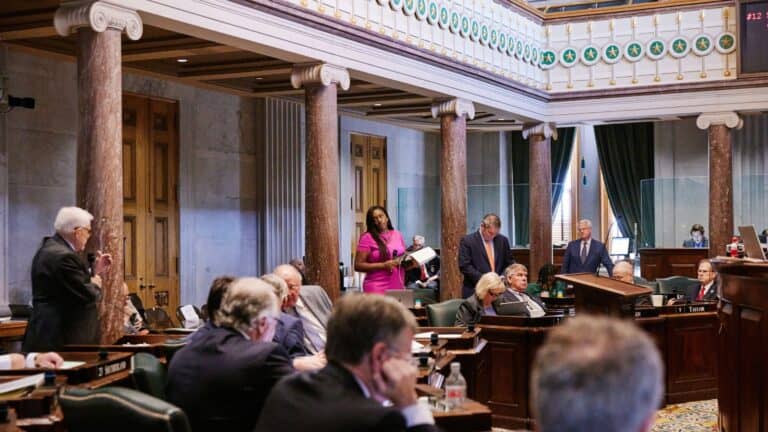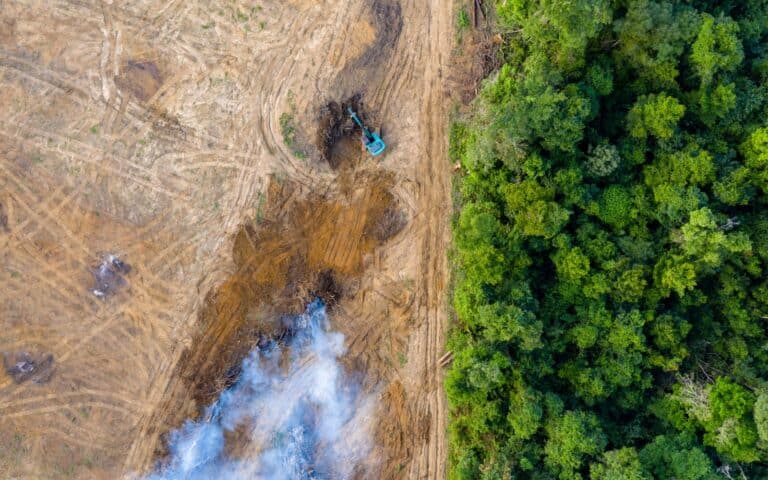UK Government’s Biomass Claims Questioned in Recent Parliament Hearing
A recent hearing by the UK Parliament’s Public Accounts Committee (PAC) has prompted strong criticism from the Partnership for Policy Integrity (PFPI), an environmental NGO dedicated to rigorous analysis of biomass energy policies. PFPI’s original analysis, published on their website, highlights key moments from the hearing, particularly focusing on statements made by officials from the Department of Energy Security and Net Zero (DESNZ) and the energy regulator Ofgem regarding biomass sustainability practices, specifically in relation to Drax’s operations.
PFPI’s position, reflected clearly in their analysis, underscores significant gaps in government transparency and accountability, advocating for policymakers to closely scrutinize the UK’s biomass strategies and reassess their environmental and climate impacts.
Misrepresentation of Biomass Sources

A key issue raised by PFPI concerns the UK government’s claim that biomass fuel primarily originates from wood waste. Dr Sarah Redwood, Director of Renewable Energy Deployment, DESNZ, repeatedly characterized biomass as primarily waste-derived, despite evidence presented in Drax’s own 2023 annual report (p. 74), clearly indicating substantial use of whole trees rather than just sawdust or waste. Independent investigations, including BBC’s Panorama, have documented logging and transportation of whole logs for pellet production, directly contradicting Dr Redwood’s claims.
These contradictions cast doubt on government transparency regarding biomass sourcing and question the validity of the UK government’s Biomass Resource Model, criticized by PFPI for its unrealistic assumptions, including biomass imports from North Korea.
Inadequate Protection of Forests
PFPI also highlighted inadequacies in the UK’s biomass sustainability criteria, pointing out that current standards permit logging and burning primary and old-growth forests. DESNZ officials indicated minimal changes despite reforms, effectively signaling continued logging practices without meaningful forest protections. Logging in regions supplying Drax, including the US Southeast, Estonia, and Latvia, is thus expected to continue largely unaffected.
Additionally, DESNZ and Ofgem admitted limited oversight, effectively acknowledging they cannot reliably monitor biomass sourcing. Kiera Schoenemann, Director of Audit and Compliance at Ofgem, confirmed at the hearing that their checks are not comprehensive, further supporting PFPI’s concerns.
Biomass: Not “Carbon Neutral”
PFPI strongly criticized DESNZ’s claim that biomass burning is “low carbon.” Jeremy Pocklington, DESNZ’s Permanent Secretary, argued biomass-related CO2 emissions are offset by forest regrowth, despite the decades-long timeframes involved. PFPI emphasizes that this logic is scientifically flawed and misleading.
Even Drax’s certifying body, the Sustainable Biomass Program, rejects claims of biomass carbon neutrality, clearly stating their certification does not guarantee reduced carbon emissions compared to fossil fuels.
BECCS and False Claims of Negative Emissions
Bioenergy with Carbon Capture and Storage (BECCS), heavily promoted by DESNZ, was also questioned by PFPI. Scientific consensus, including guidelines from the Intergovernmental Panel on Climate Change (IPCC), indicates BECCS using forest biomass does not yield true negative emissions, merely transferring previously stored carbon from trees to underground storage.
The hearing revealed government uncertainty about future IPCC rules regarding BECCS emissions accounting, highlighting significant regulatory and scientific ambiguity, further supporting PFPI’s critical stance.
Next Steps for Policymakers
PFPI urges transparent, science-based biomass policies, recommending biomass use be restricted to genuinely sustainable sources such as sawmill waste. This recommendation aims to reduce environmental harm and prevent misleading carbon accounting.
The ongoing debate underscores the urgent need for policymakers to revise biomass sustainability criteria and enhance oversight, prioritizing genuine climate protection measures over flawed energy claims.
(Original detailed analysis available at Partnership for Policy Integrity)







